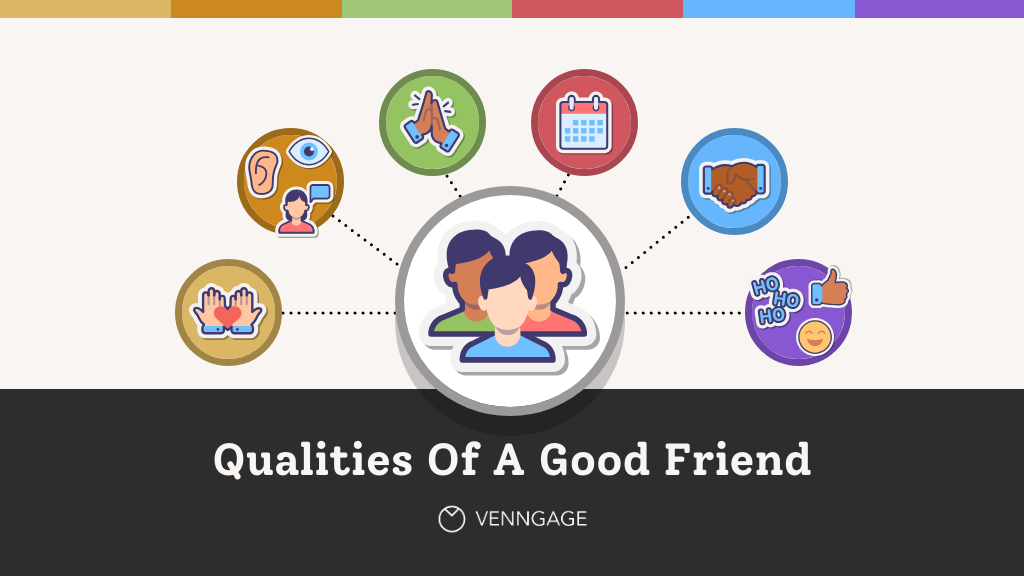In the vast tapestry of human experiences and relationships, the quest for authentic companionship stands out as a quintessential quest. Drawing upon the teachings of the Bahá’í Faith, we can explore the notion of friendship through the lens of spiritual and ethical development. The phrase “I want a good friend with me when I die” serves as a potent metaphor that encapsulates our inherently social nature and the profound yearning for meaningful connections that persist even in the face of mortality.
At its core, a good friend embodies much more than superficialities and mere companionship. The Bahá’í teachings espouse that true friendship is grounded in the virtues of love, trust, and mutual respect. This ideal relationship is illustrated through several key principles, each interwoven to create a composite picture of what it means to genuinely connect with others.
The Foundation of Mutual Love
The essence of a good friend begins with love—an unconditional affection that transcends external circumstances. Bahá’í teachings articulate that love is not only a personal feeling but a force that propels individuals toward selflessness and altruism. It encourages individuals to transcend their own desires and connect with the spirit of others. True friendship is rooted in a profound understanding: “The betterment of the world can be accomplished through pure and goodly deeds, through commendable and goodly sayings.” This perspective posits that friendships are not merely personal in nature; they gain immensity and depth when they elevate the collective spirit.
Trust: The Bedrock of a Robust Relationship
Trust emerges as the bedrock upon which the edifice of friendship is constructed. The Bahá’í writings stress that without trust, relationships cannot flourish. Trust transforms friendships from ephemeral connections into resilient bonds. It is the assurance that one can rely on another during times of adversity, thus fostering an environment where both individuals can grow emotionally and spiritually. A friend who instills trust offers a sanctuary of solace, especially in moments of tribulation, proving that the companionship of a trustworthy ally is invaluable, especially when faced with life’s ephemeral nature.
Empathy and Understanding
The significance of empathy in friendships cannot be overstated. To empathize means to grasp the emotions and experiences of another person, cultivating an atmosphere of understanding and compassion. In the Bahá’í view, the principle of oneness necessitates that individuals strive to recognize the interconnectedness of all humanity. A good friend is one who not only listens but who actively seeks to understand without judgment. This mutual understanding deepens relationships and fosters an environment where individuals feel safe to express their vulnerabilities. Given the transient nature of life, having a friend who comprehends your essence can be an anchor amid turbulence.
Support Through Life’s Journey
Throughout life’s vicissitudes, a good friend serves as a steadfast companion—someone who celebrates triumphs and provides solace in despair. According to Bahá’í teachings, the journey of life is not meant to be traversed alone. The idea of companionship resonates deeply within the collective human experience. A true friend not only encourages personal growth but also promotes spiritual enlightenment. This dual support encourages individuals to elevate their aspirations, pushing one another toward a higher moral and spiritual consciousness. When contemplating the end of life, the presence of such a companion offers solace, illustrating the significance of shared journeys and memories constructed together.
Autonomy and Respect
Despite the profound connection forged between friends, the Bahá’í teachings emphasize the importance of maintaining one’s individuality. A good friend respects personal autonomy, allowing each individual the space to flourish independently. This respect enshrines a healthy balance within relationships, aligning with the Bahá’í concept of mutual respect as a pillar of harmonious interaction. Acknowledging each other’s unique paths fosters a richness in the relationship that may not surface in more conventional companionships. Ultimately, as each individual matures independently, the bond between friends can grow stronger, underscoring that true friendship celebrates individuality while simultaneously cherishing togetherness.
Spiritual Connectivity
One of the profound elements of a good friendship, according to Bahá’í principles, lies in the spiritual dimension that interlaces personal connections. A good friend encourages spiritual development and inspires each other towards the quest for truth. This journey toward spiritual realization strengthens the bond between friends. As individuals unite in their search for enlightenment, the relationship becomes a source of motivation and encouragement. At life’s culmination, the belief that both individuals have traversed this path together imbues the final moments with significance and peace.
The Legacy of Friendship
The impact of a profound friendship does not cease with death; rather, it can leave an indelible mark on the hearts and lives of others. Such relationships resonate beyond personal experiences, nurturing a legacy that inspires future generations. Bahá’í teachings advocate that the virtues cultivated within friendships can contribute to the betterment of society at large. The memory of a friend who has profoundly influenced one’s life can become a catalyst for positive change, energizing our aspirations to foster companionship and unity within communities.
In conclusion, the Bahá’í perspective on friendship invites us to reflect on our connections and the qualities we seek in a companion. A good friend, particularly one we desire at the end of our journey, embodies love, trust, empathy, and respect—the essential ingredients for a relationship that withstands the test of time. In cherishing and nurturing these qualities, humanity can pave the way for a more connected, compassionate, and enlightened world. When contemplating the significance of companionship at life’s end, one may find solace not only within the relationships forged but also in the eternal essence of love that transcends even the boundaries of physical existence.
